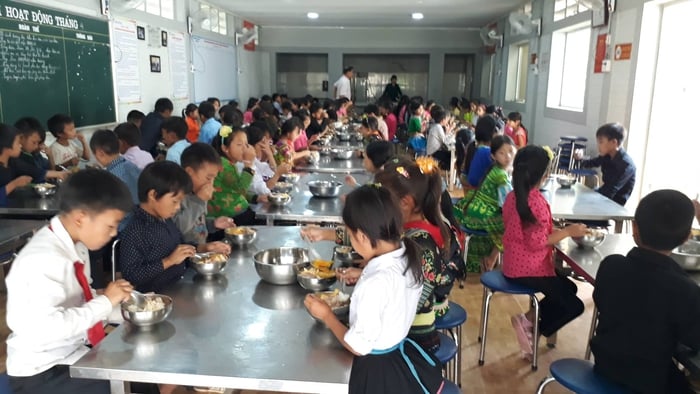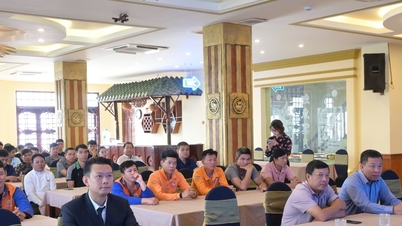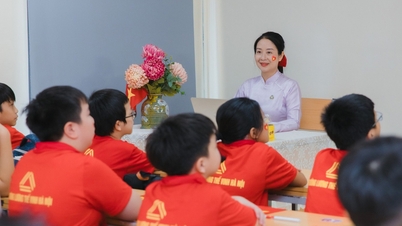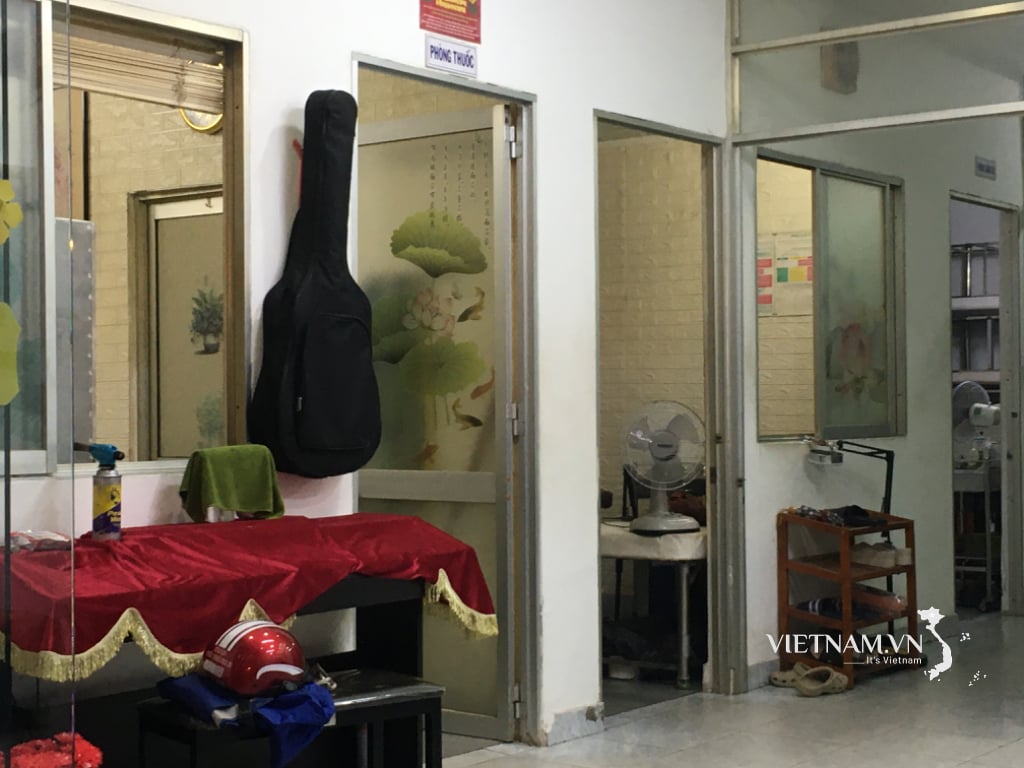Concerns of teachers in disadvantaged areas
While the quality of education in cities and plains is steadily improving, teachers in remote areas still face unique challenges. Lack of facilities, limited learning resources, and especially the disparity in access to education are widening the gap in educational quality between mountainous and urban areas.
Teacher Tran Hieu (from Ta Mung Primary School, Than Uyen District, Lai Chau Province) often has to go to students' homes to persuade them to come to school. Students from the Mong and Thai ethnic groups in this particularly disadvantaged, highland commune of Than Uyen District still have the habit of "staying home to play." Ms. Hieu said that if students here don't want to go to school, they skip it; if teachers don't go to encourage them, they'll stay home permanently.
"Teachers in disadvantaged areas like ours receive good benefits and allowances for mountainous regions. The qualifications of teachers in mountainous areas are now up to or above standard. We also regularly receive professional development to keep up with the teaching requirements of the new curriculum. All classrooms at my school are equipped with projectors. In particular, the government pays great attention to and creates favorable conditions for students in remote and mountainous areas. However, due to limited awareness among the people, they don't see the importance of sending their children to school."
Teaching in mountainous areas is not just about imparting knowledge, but also about keeping students in class. Compared to other regions, in mountainous and remote areas, simply having a high attendance rate is often considered a success. In reality, many students still have to drop out of school to help their families. Meanwhile, parents in cities are very interested in investing in their children's education. Therefore, if there isn't a change in people's awareness so that they value their children's education, no matter how hard teachers try, the educational gap will be difficult to bridge," Ms. Hieu lamented.

Elementary school lunch in Than Uyên district, Lai Châu province.
Tuition waivers must go hand in hand with ensuring the quality of teaching and learning. An increase in student numbers requires adequate resources: qualified teachers, quality facilities, and learning materials.
Ms. Silvia Danailov, Head of the United Nations Children's Fund (UNICEF) Representative Office in Vietnam
A teacher (who wished to remain anonymous) in Than Uyên district, Lai Châu province, believes that education in mountainous areas struggles to keep pace with that in the lowlands partly due to a lack of qualified and professional teachers. "In many primary schools in mountainous areas, there is a severe shortage of English teachers. Some schools compensate by assigning teachers without foreign language degrees, only English certificates, to teach English. This major shortcoming means that most students in mountainous areas remain 'illiterate' in English."
Information technology is also one of the challenges facing education in mountainous areas. Due to inadequate internet access, students lacking smartphones and computers at home, and schools not being equipped with enough computers, students' technological skills are very poor. Poor foreign language and technological skills further widen the gap between students in mountainous areas and those in lowland and urban areas. In addition, vastly different learning conditions make it difficult for education in disadvantaged regions to catch up with more developed areas.
This teacher also expressed concern about the implementation of the tuition-free policy: "Tuition-free education brings clear benefits to each family, but it can also cause some financial difficulties for the education budget, especially if the government does not have a clear plan to compensate for the lost revenue from tuition fees. Will this affect the welfare and benefits of teachers? If the budget is cut or not adjusted appropriately to compensate for tuition-free education, educational institutions may face shortages of facilities, teaching equipment, or insufficient resources to train and upgrade teachers. This could also affect the learning environment and the quality of teaching."
Investing in improving teacher quality.
Teachers in mountainous areas now meet or exceed the required qualifications. However, compared to urban areas, they do not participate in as many training courses to improve their skills and update their knowledge. This is one of the reasons why the quality of education in disadvantaged areas remains limited. "To improve the quality of education in disadvantaged areas, in addition to tuition fee exemption policies, I hope the government will invest more in the teaching staff, such as adding foreign language teachers, teachers with qualifications and experience, and teachers with modern teaching methods and information technology..." - a teacher in Than Uyên, Lai Châu shared.

Students of Luong Minh Ethnic Boarding Primary School
To improve the quality of education in disadvantaged areas, according to Mr. Nguyen Van Thanh (Principal of Luong Minh Ethnic Boarding Primary School, Tuong Duong District, Nghe An Province), it is necessary to improve the quality of teaching and learning. To achieve this, it is essential to improve school infrastructure, such as investing in the construction of sturdy school buildings with sufficient classrooms, libraries, and teaching equipment, and expanding the internet and information technology systems to allow teachers and students access to a wider variety of learning materials. In addition, it is necessary to strengthen teacher training in mountainous areas by organizing professional training courses and modern teaching skills training for teachers in remote and disadvantaged regions.
Tuition-free education can lead to increased class sizes, which can put pressure on teachers if they are not adequately prepared in terms of resources and personnel. Therefore, if tuition-free policies are accompanied by investments in teacher training, facilities, and curriculum, the quality of education will be improved. "Equipping teachers with sufficient materials, equipment, and professional support will help them improve their teaching methods, thereby enhancing student learning."
Meanwhile, Mr. Dang Huu Doan (Deputy Principal of Than Uyen Town Primary School, Lai Chau Province) affirmed that tuition fee exemption is a meaningful policy, not only for parents and students. Teachers in mountainous areas are delighted because with the tuition fee exemption policy, they will have less difficulty in encouraging students to attend school. Now, thanks to digital transformation and the application of technology in education, the quality of the teaching staff in mountainous areas has also improved significantly.
However, teachers here need more support in terms of teaching materials and advanced training programs. To ensure that the tuition-free policy truly yields long-term benefits, coordinated and reasonable support measures are needed, including investment in facilities, teacher training, and ensuring adequate financial resources to improve teachers' working conditions and teaching quality.


![[Photo] Prime Minister Pham Minh Chinh presides over a meeting on private sector economic development.](/_next/image?url=https%3A%2F%2Fvphoto.vietnam.vn%2Fthumb%2F1200x675%2Fvietnam%2Fresource%2FIMAGE%2F2025%2F12%2F20%2F1766237501876_thiet-ke-chua-co-ten-40-png.webp&w=3840&q=75)







































































































Comment (0)